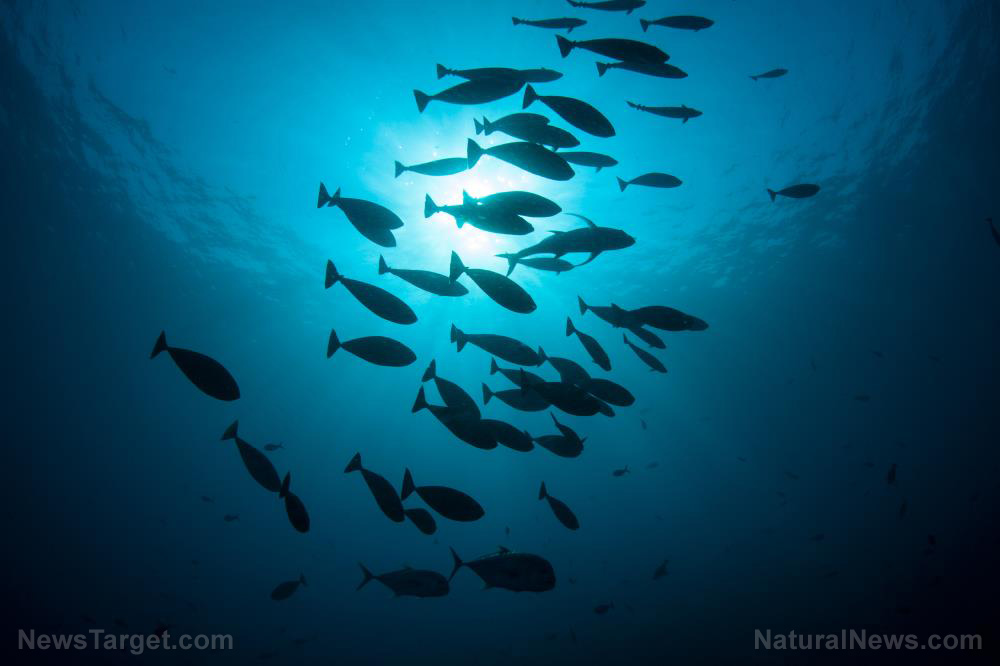Is ocean acidification another climate change HOAX? Scientists blow the whistle on massive, coordinated data manipulation and FRAUD
05/12/2021 / By Ethan Huff

The “last refuge of the climate scoundrels,” to quote a friend of Australian physicist Dr. Peter Ridd, is “ocean acidification,” a global warming conspiracy theory that appears to be the latest hoax of the climate change cult.
Despite dozens of published papers claiming that ocean acidification is real, a group of whistleblowers has come forward to request a misconduct investigation into the legitimacy of this questionable research.
At least 22 different research papers may contain manipulated data, and two – one published in the journal Science and the other in Nature Climate Change – for sure do.
Other similar papers also rely on data that suggests “statistically impossible” behavioral effects from carbon dioxide (CO2) on ocean acidity levels. All of this points to major fraud.
“The papers’ two main authors emphatically deny making up data, and James Cook University, Townsville, in Australia has dismissed the fabrication allegations against one of them after a preliminary investigation,” Science Magazine reported.
“But multiple independent scientists and data experts who reviewed the case flagged what they said were serious problems in the two data sets, as well as in two additional ones co-authored by one of the accused scientists.”
What is perhaps more disturbing than the potential data fraud involved is the fact that so-called “reputable” scientific journals published it in the first place. What does this say about the integrity of the established scientific community?
“The case isn’t just about data and the future of the oceans,” Science Magazine further explains about the situation.
“It highlights issues in the sociology, psychology, and politics of science, including pressure on researchers to publish in top-tier journals, the journals’ thirst for eye-catching and alarming findings, and the risks involved in whistleblowing.”
Climate fanatics grasping at anything to keep global warming conspiracy theory alive
Philip Munday is one of the ringleaders of the ocean acidification movement. He participated in a Zoom meeting back in December with more than 70 colleagues and students during which he discussed the “evidence” proving his theory is real.
Munday has co-authored more than 250 papers and created something of a marine biology mecca in Townsville where climate fanatics come to learn more about how CO2 is supposedly destroying the planet.
Munday and biologist Danielle Dixson first started publishing their research on ocean acidification back in 2009. Their claim is that CO2 and other greenhouse gases are killing fish and destroying ocean ecosystems.
The Intergovernmental Panel on Climate Change (IPCC) agrees with their assessment, having stated back in a 2014 report that ocean acidification could have “profound consequences for marine diversity” and fisheries.
The IPCC, by the way, has suggested in the past that “chemtrailing” the skies with particulates – a process it calls solar geoengineering – may help to dull the sun and cool the planet.
Three-year ocean acidification inquiry determined it to be false
Everything was going smoothly for the ocean acidification cult until fish physiologist Timothy Clark came along with six others and presented a different narrative. After investigating the concept for three years, they came to the conclusion that it does not add up.
They published a paper that created so much division within the climate change community that author Dominique Roche said, “It’s like Republicans and Democrats.”
On the one hand, scientists were calling the study “by far the best environmental science paper I have read for a long time.” On the other, some accused it of containing “methodological or analytical weaknesses.”
Munday lashed out by calling the work challenging his and Dixson’s data “abhorrent” and “slanderous.” Dixson also indicated in a statement that she stands by all of her data, claiming it was “collected with integrity.”
The whistleblowers, however, say their case is solid and that their findings concerning Dixson’s data problems will soon be published on PubPeer, a website for discussing published work.
“In my experience, whistleblowers, myself as well as others, are shamed for talking to the media before an investigation has concluded misconduct,” stated Josefin Sundin of the Swedish University of Agricultural Sciences, one of the authors of the Nature paper.
“But why is that? If an investigation even takes place, it can drag on for a very long time. If you know that data have been fabricated, why is it considered the right thing to do to stay silent about it for months and even years?”
When Clark came to Townsville back in 2011 to take a research position at the Australian Institute of Marine Science, he set out to repeat some of the experiments that Munday and Dixson conducted to arrive at their conclusions. As it turns out, Clark’s experiments produced different results.
Adding CO2 to ocean water did not, in fact, cause fish to move. Some of them were actually so terrified that they did not move at all. Just to be sure that his experiments were valid, Clark videotaped and used software to track fish behavior in numerous subsequent experiments in order to rule out bias, which Munday and Dixson did not do.
In the end, the ocean acidification theory did not hold water. By all appearances, it was contrived for the purpose of pushing climate change propaganda as other long-touted theories such as ocean level rises and warming prove false.
“This is pretty remarkable,” wrote one commenter at WattsUpWithThat.com. “Are we witnessing the start of increased scrutiny of global warming science?”
“It’s been a long time coming but, yes, I think a reckoning is coming in the next few years,” responded another.
More related news stories can be found at ClimateScienceNews.com.
Sources for this article include:
Tagged Under: acidification, climate change, fraud, global warming, hoax, manipulation, Ocean, Ocean Acidification, ocean health, research integrity, rigged, scam
RECENT NEWS & ARTICLES
COPYRIGHT © 2017 SCIENTIFIC NEWS





















